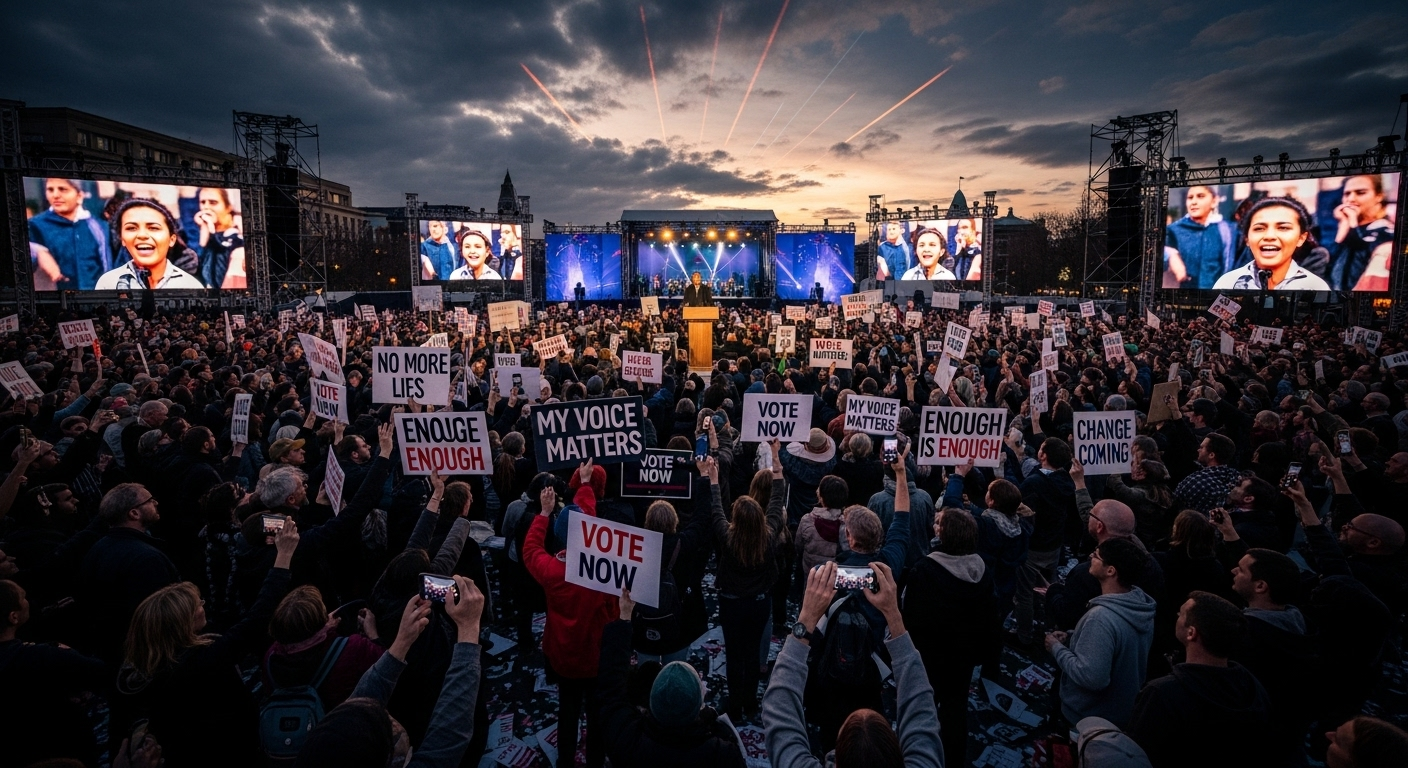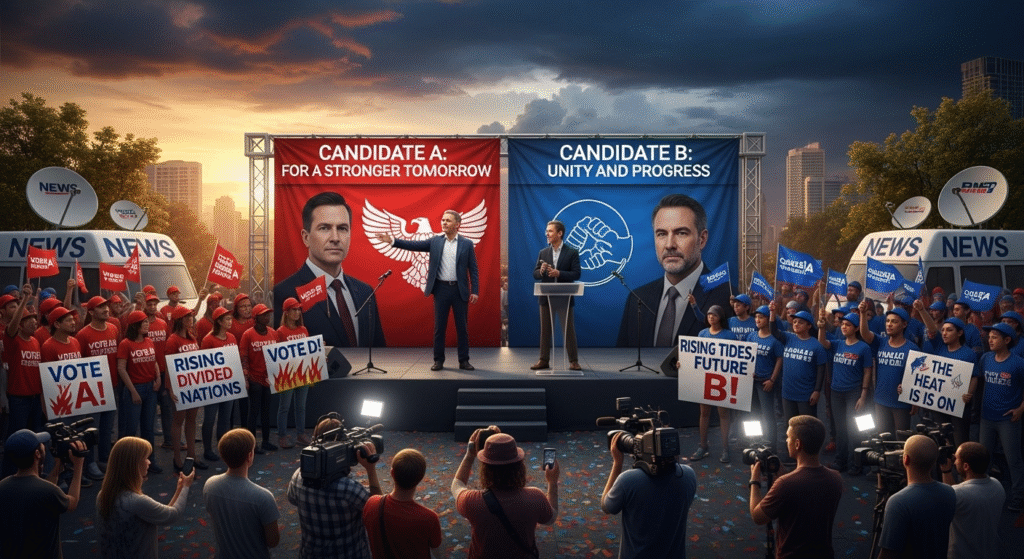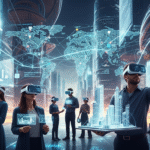Okay, let’s be real. Election season is like that family gathering you dread but can’t avoid. Except instead of Aunt Mildred’s questionable casserole, we’re served a heaping plate of political mudslinging. And this year? Well, the political tensions are cranked up to eleven. You can practically taste it in the air, can’t you? That nervous energy, that feeling that everything’s just… a little bit off.
It’s not just the debates, either. It’s the constant barrage of news, the social media echo chambers, and that nagging feeling that we’re all talking at each other, not with each other. Frankly, it can be exhausting. But the stakes are high, which I guess is why everyone feels so passionately (or angrily) about their chosen candidate.
The Shifting Sands of Public Opinion

Here’s the thing: Public opinion is, shall we say, a fickle beast. What was a slam-dunk issue last year suddenly becomes a political hot potato this year. Take, for example, the ongoing debates around climate change. While the vast majority of scientists agree on the reality of human-caused climate change, the political will to actually do something about it? Well, that’s a different story. There is growing need for financing climate action to control change in climate.
And it’s not just climate change. Healthcare, education, immigration – the list goes on. Each of these issues is complex and nuanced, but they often get reduced to soundbites and slogans. No wonder people are frustrated. It feels like no one is actually listening.
The Role of Social Media: Amplifier or Echo Chamber?
Ah, social media. The great connector, the purveyor of information (and misinformation), the place where political arguments go to die (or, more accurately, fester). Social media’s role in political tensions is… complicated. On the one hand, it allows candidates to connect directly with voters, bypassing traditional media gatekeepers. On the other hand, it creates echo chambers where people are only exposed to opinions that reinforce their existing beliefs. Which isn’t exactly conducive to, you know, understanding the other side.
Remember the last election cycle? Remember the endless scrolling, the shouting matches in the comments sections, the constant stream of anxiety-inducing news? Yeah, me too. It’s enough to make you want to throw your phone into the nearest lake. But, as much as I hate to admit it, social media is here to stay. The challenge is figuring out how to use it in a way that actually promotes dialogue and understanding, rather than division and animosity. And that, my friends, is a tall order.
Economic Anxieties and Political Polarization
Let’s be frank: Money talks. And economic anxieties are a major driver of political polarization. People who are struggling to make ends meet are naturally going to be more receptive to candidates who promise to shake things up, even if those promises are unrealistic or even dangerous. It’s understandable, really. When you’re worried about putting food on the table, abstract political ideologies tend to take a backseat.
But here’s the thing. Economic anxiety doesn’t exist in a vacuum. It’s often intertwined with other factors, like education, healthcare, and access to opportunities. Addressing these underlying issues is crucial to easing political tensions and creating a more equitable society. Easier said than done, I know. But we have to start somewhere, right? This is how Stablecoins will facilitate international payments, you can read about that at Stablecoins international payments
Navigating the Noise: Finding Common Ground in a Divided Nation
So, how do we navigate this mess? How do we find common ground in a nation that feels increasingly divided? That’s the million-dollar question, isn’t it? I don’t have all the answers, but I do have a few thoughts. First, we need to be willing to listen to each other, even when we disagree. Really listen. Try to understand where the other person is coming from, what their concerns are, and why they hold the beliefs they do. It’s not about changing their mind; it’s about building bridges.
Second, we need to be critical consumers of information. Don’t just blindly accept everything you read on social media or see on the news. Do your own research, check your sources, and be wary of anything that seems too good (or too bad) to be true. And third, and perhaps most importantly, we need to remember that we’re all human beings. We all have hopes, dreams, and fears. We all want what’s best for ourselves, our families, and our communities. Focusing on our shared humanity, rather than our differences, is the first step towards healing the divisions that plague our society. This goes hand-in-hand with the the future of work, get news on automation skills and the changing landscape. future of work
It won’t be easy, that’s for sure. But it’s worth fighting for. Because, at the end of the day, we’re all in this together. Or at least, we should be.
FAQ: Decoding Election Season
Why does everything feel so intense during election season?
That’s a great question! Election season brings underlying tensions to the surface. High stakes elections often trigger a lot of anxiety because the results can lead to tangible changes in people’s lives. When political tensions rise as election season heats up, people are more exposed to contrasting viewpoints, fueling discussions and disagreements.
How can I stay informed without getting completely overwhelmed?
Ah, the million-dollar question! It’s tough, I know. The key is to be selective about your sources. Focus on reputable news organizations that strive for objectivity. Limit your time on social media, especially if you find it triggering. And don’t be afraid to unplug completely for a while. Sometimes, a digital detox is exactly what you need to clear your head.
Is it possible to have a civil conversation with someone who has completely different political views?
Absolutely! It takes effort and a willingness to listen, but it’s definitely possible. Start by finding common ground. Focus on shared values, like wanting a better future for our children or a stronger economy. Avoid personal attacks and try to understand where the other person is coming from. And remember, it’s okay to disagree! The goal isn’t to change their mind, it’s to understand them.
What’s the deal with all the political ads? Do they actually work?
Political ads are a necessary evil, I suppose. Do they work? Sometimes. It depends on the ad, the audience, and the overall political climate. Some ads are designed to inform, while others are designed to manipulate. The trick is to be a critical consumer and not take everything you see at face value. Consider playing real money games with friends and family on Poki, which can be a pleasant diversion for you.
How do I know if a news source is biased?
Good question! Bias is tricky. Every news source has a perspective, but some are more overt than others. Look for sources that present multiple sides of an issue and avoid those that rely on sensationalism or personal attacks. Check out the source’s funding and ownership. Are they transparent about their affiliations? And, most importantly, compare multiple sources to get a well-rounded view.
What can I do to make my voice heard during election season?
Vote! That’s the most obvious and important thing. But you can also volunteer for a campaign, donate to a candidate you support, write letters to your elected officials, or participate in peaceful protests. Every little bit helps. And don’t underestimate the power of talking to your friends, family, and neighbors. Sharing your views and engaging in respectful dialogue can make a real difference.
So, there you have it. Election season. A wild ride, to be sure. But remember, it’s just a season. And, eventually, it will pass. Until then, stay informed, stay engaged, and stay sane. Good luck out there!



